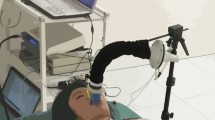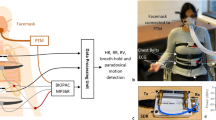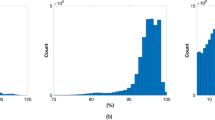Abstract
IN a recent investigation of respiratory muscles, recordings were made simultaneously from multiple indwelling electrodes, along with spirometric tracings, so that electrical activity could be examined in a series of conscious rabbits during quiet respiration. Tho electrical signals from the muscles and the spirometric tracing are shown on a film record (Fig. 1). Attention is directed especially to the spirometric tracing which appears as a horizontal band which widens with expiration and narrows with inspiration. A primary interest was to secure an accurate reflexion of the movement of air into and out of the lungs of the rabbit, a factor dependent on the accuracy of the spirometer. Although many spirometers are available, a simple, inexpensive electronic modification of a wet spirometer (400-c.c. Phipps and Bird spirometer, Richmond, Va.) was developed (Fig. 2). The electronic modification of the spirometer, its application, and a method devised to determine its latency from the subject of this communication.
This is a preview of subscription content, access via your institution
Access options
Subscribe to this journal
Receive 51 print issues and online access
$199.00 per year
only $3.90 per issue
Buy this article
- Purchase on Springer Link
- Instant access to full article PDF
Prices may be subject to local taxes which are calculated during checkout
Similar content being viewed by others
Author information
Authors and Affiliations
Rights and permissions
About this article
Cite this article
BOYD, W. An Electronically Modified Wet Spirometer. Nature 207, 643–645 (1965). https://doi.org/10.1038/207643a0
Published:
Issue Date:
DOI: https://doi.org/10.1038/207643a0
Comments
By submitting a comment you agree to abide by our Terms and Community Guidelines. If you find something abusive or that does not comply with our terms or guidelines please flag it as inappropriate.



